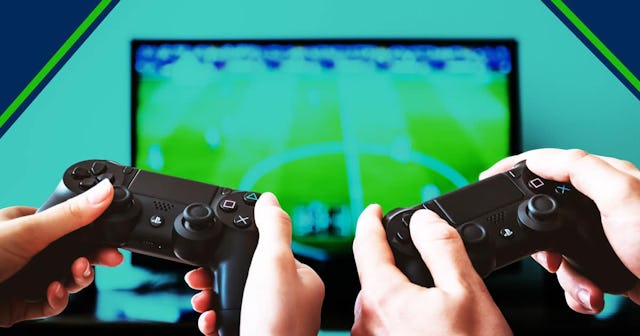7 Benefits Of Playing Video Games

I’ve read the studies and articles that claim video games are terrible for kids — that they rot their brains, stunt their cognitive development, and maybe even turn teens into violent criminals.
I still let my kids play video games though, and quite a lot if I’m being honest. Until I witness adverse effects from it, I have no plans to change that. Not because I’m stubborn and convinced my way is the right way, but because there are also plenty of studies on the other side of the video game debate that say video games not only aren’t as harmful as we thought, but that in a lot of ways, they are actually really good for our kids.
It’s true that my 13-year-old son has been known to throw the occasional tantrum when I tell him it’s time to shut electronics down. I sometimes institute video game moratoriums when I think he seems a little too attached to his computer. My 10-year-old daughter self-regulates her electronics and video game usage and has never had any trouble detaching herself.
Still, despite my son’s occasional difficulties in pulling himself away, for us, and for many other parents and their kids, video games have had far more positive effects than negative. Here are just a few of those, each backed by science:
1. Video games develop spatial awareness.
Early on, when my kids went through their Minecraft obsession, I couldn’t help but notice how the game improved their spatial awareness. My daughter built a Minecraft-sized model of our house, including every room and every piece of furniture, just as it was in real life. She had to carefully consider the layout of our house by adjusting her inner perspective to a “bird’s eye” view. A study from Molecular Psychiatry even found that gamers who played a platformer game for two months for at least 30 minutes a day had an increase in their brain’s gray matter in areas “crucial for spatial navigation, strategic planning, working memory and motor performance.”
2. Video games boost creativity.
Jessica Lewis/Pexels
Oh, the creativity of those Minecraft worlds! I’m still amazed at the structures my two kids have built within that weird, blocky game. My son also plays Kerbal Space Program, a game in which you design, build, and launch your own rockets, explore space, and build and manage resource-gathering colonies. My daughter uses design apps to practice drawing anime characters.
3. Video games build teamwork skills.
My kids had to work together as a team to build their Minecraft worlds — they had to communicate effectively to build their cities while avoiding the zombies. I love hearing them shout from one room to another their strategies for achieving their goals.
4. Video games develop sensorimotor skills.
In other words, they help with hand-eye coordination. Psychology researchers at the University of Toronto found that people who play action video games like Call of Duty or Assassin’s Creed picked up new sensorimotor skills quicker than non-gamers did.
I’m not surprised. Have you ever tried playing video games as a novice? The last game I played with any real intention of mastering it was Super Mario Brothers 3, and I tell you, I cannot freaking navigate these new 3-dimensional worlds with the damn controllers that have 82 buttons. I tried to play Minecraft with my kids after they begged me for months, and I got so frustrated I almost started crying. My hands simply could not coordinate with my brain to make my character move where I wanted him to go. Way to make me feel old, kids. Ugh.
5. Video games develop problem-solving skills.
Bruno Henrique/Reshot
Not just problem-solving, but problem-solving quickly. Researchers have found that even (maybe especially) “shooter games”– those games that are often violent in nature and most likely to be criticized by opponents of gaming, like Call of Duty or Grand Theft Auto — can lead to measurable cognitive boosts. The American Psychological Association published research finding that gamers who played shooter games showed “faster and more accurate attention allocation, higher spatial resolution in visual processing, and enhanced mental rotation abilities.” Not only that, but the improvements in these areas as a result of playing shooter games are long-lasting, and comparable to what one would get from a high school or college-level course aimed at improving those same skills.
6. Video games can be a great way to socialize, especially for kids who tend toward introversion.
As my son has gotten older (he’s about to turn 14), video games have been a way for him to socialize. He has a couple of good friends online he plays various games with, and I hear him laughing and joking with them every night. For a kid who takes time making friends, I’m happy he has this outlet.
7. Video games can be used as currency.
My son looks forward to his gaming time so much that we have designated it as a privilege that he can have only as long as his schoolwork, chores, and guitar practice are finished and he has been respectful and kind. Timeouts and other punitive consequences never really worked for him, and neither did having a nice, calm sit-down talk. Video games as currency has worked better than anything else we’ve tried.
So video games truly aren’t all bad, and in a lot of ways, they’re actually pretty great. That said, it makes sense to approach video games the same as we approach anything else — with moderation. My kids spend a ton of time playing video games, but they’re also good students with wonderful friends, great verbal communicators, and kind human beings. They have other interests besides video games. Their chores get done and their music gets practiced. And, for as long as all of that remains true, I’m totally fine with my kids playing video games.
This article was originally published on